Equipping green capacity from knowledge to thinking
On the morning of April 17, continuing the 4th Summit of the Partnership for Green Growth and the Global Goals 2030 (P4G) in Hanoi , ministerial-level discussions took place.
Deputy Minister of Education and Training Nguyen Van Phuc chaired Discussion Session No. 4 with the topic "Investing in people - Building a team for the future economy ".
The discussion session was attended by representatives of delegations attending the P4G Conference, United Nations organizations, international financial institutions, representatives of Vietnamese and international scholars and businesses.
At the discussion session, delegates focused on exchanging solutions for human resource development and a competitive labor market, meeting the needs of digital transformation and green transformation globally.
In addition, delegates also shared information on successful cooperation models in countries around the world in training green human resources to serve the green transformation of the economy.
 |
Delegates attending the discussion session. (Photo: DUY LINH) |
Speaking at the discussion session, Deputy Minister Nguyen Van Phuc emphasized that the Communist Party of Vietnam and the Government of Vietnam always pay attention to the development of education and training with the viewpoint: Education and training is the top national policy, the cause of the Party, the State and the entire people. Investment in education is investment in development, given priority in socio-economic development programs and plans.
According to the Deputy Minister, one of the important pillars to realize the green transformation goal and commit to implementing Net Zero by 2050 is to develop a circular economy, based on the principles of optimizing resources, reducing waste and promoting sustainable development.
To do this, it is necessary to synchronously implement many solutions, in which the role of education is to develop industries and professions associated with the circular economy and train human resources with the capacity to adapt and lead the transformation process.
In recent times, the Vietnamese Ministry of Education and Training has issued many important policies, creating favorable conditions for the development of industries and professions associated with the development of a circular economy, creating a foundation for the development of green human resources.
Deputy Minister Nguyen Van Phuc stated that in the future, the vocational education and higher education system needs to quickly update and develop new training programs, focusing on developing skills and academic expertise, serving key areas, contributing to the development of a circular economy such as: Biotechnology, renewable energy, organic agriculture, green environmental construction, environmental technology, waste management, material recycling, green logistics and sustainable product equipment.
 |
Deputy Minister of Education and Training Nguyen Van Phuc speaks. (Photo: DUY LINH) |
In particular, priority will be given to developing industries related to renewable energy, recycling techniques and smart waste management - areas that will play a pivotal role in the future green economic structure.
In addition, the Deputy Minister also pointed out other priorities such as: Supporting the development of education-enterprise models linked to circular practices; enhancing international cooperation and access to green knowledge; prioritizing investment and supporting green career transition in localities...
Accordingly, there needs to be a policy to prioritize retraining and job conversion for workers in areas affected by the transition. This is the key to ensuring appropriate transition and leaving no one behind in the Net Zero action process, Deputy Minister Nguyen Van Phuc emphasized.
The ability to innovate and quickly adapt to green technology will be the key to helping countries catch up with global trends, said Mr. Shantanu Chakraborty, Country Director of the Asian Development Bank (ADB) in Vietnam.
To achieve that, ADB representatives recommended that strategic priorities need to be implemented in parallel, including strong investment in education and training, developing "green" curricula at all levels, from general education to vocational training, with practical content closely linked to production and business practices, creating a lifelong learning environment and continuous professional development, to promptly update with the progress of the green industry.
In particular, government policies and incentives play a key role, from supporting training facilities, tax exemptions, to funding research and development. Building a national skills and qualifications framework for green transition will create a solid foundation for standardizing and spreading quality training programs.
ADB also called for close coordination between educational institutions, businesses, and government agencies in implementing flexible training programs aimed at narrowing the skills gap, while creating conditions for workers and local communities to participate more deeply in green initiatives, natural resource conservation, and climate change adaptation.
Among them, the green development community model in the Mekong Delta that Vietnam is implementing is assessed by ADB as a creative and effective direction, worth learning.
Human resources are at the heart of green growth
In the Philippines, the government has identified the urgent task of comprehensively restructuring the training and skills development system to meet the requirements of a green economy. This reform includes integrating sustainable skills and environmental protection into the entire vocational training process, said Ms. Noralene M. Uy, Assistant Secretary of the Environment and Natural Resources of the Philippines.
"We are aiming to shift the economic structure to low-carbon sectors, create a skilled workforce, meet new market demands and support future green growth policies," Ms. Noralene informed.
According to her, the Philippine Government is actively implementing job creation programs in the fields of renewable energy, ecological agriculture, sustainable construction and resource management. In addition, policies to promote green competition are also being completed to enhance national competitiveness on the basis of sustainable development.
 |
Ms. Ramla Khalidi, Resident Representative of UNDP Vietnam, speaking. (Photo: TRUNG HUNG) |
According to Ms. Ramla Khalidi, Resident Representative of the United Nations Development Programme (UNDP) in Vietnam, a green workforce is a fundamental factor in achieving climate goals. However, this transition also poses major challenges in terms of capacity, requiring the development of flexible, updated and highly innovative education models.
UNDP recognized that Vietnam has had many pioneering programs and initiatives towards sustainable development, notably green vocational training programs, promoting digital skills and adaptive thinking among young people.
For his part, Mr. Jonathan Wallace Baker, Chief Representative of the United Nations Educational, Scientific and Cultural Organization (UNESCO) in Vietnam, emphasized that human resources play a core role in the global green growth process.
UNESCO calls for the development of a global green workforce training system, focusing on developing green skills, digital skills and innovation capacity, along with breakthrough thinking for an adaptive workforce.
From now until 2030, UNESCO will continue to promote education for sustainable development, integrating environmental protection and climate adaptation into formal and extracurricular education systems.
UNESCO representatives expressed their satisfaction in cooperating with the Ministry of Education and Training of Vietnam to implement green education programs in Hanoi and Ho Chi Minh City, with the active participation of schools and the entire primary education system, promoting an integrated approach to environmental issues and applying green principles to the Happy School model.
 |
Associate Professor, Dr. Bui Huy Nhuong - Deputy Director of National Economics University speaking. (Photo: TRUNG HUNG) |
From Vietnam's reality, Associate Professor, Dr. Bui Huy Nhuong - Deputy Director of the National Economics University, said that general education is an especially important stage to sow the seeds of green thinking and sustainable development right from when one is still in school.
The integration of environmental, climate, and sustainable development content into subjects such as natural sciences, geography, civic education, etc. needs to be promoted in a practical, interdisciplinary direction and to create excitement for students.
In addition, building green school models, organizing outdoor experiential activities, raising awareness and environmental protection behaviors are also considered effective educational methods to gradually form green thinking for students, along with a plan to train core lecturers, improve pedagogical capacity in education for sustainable development and integrated skills in teaching.
Emphasizing the central role of education, vocational training and labor skills transformation in the process of realizing green development goals, delegates at the meeting agreed that developing green human resources is a prerequisite for countries to realize the goals of green growth, circular economy and sustainable development in the future.
As a host country, Vietnam has been gradually concretizing this goal through practical actions, starting from schools, businesses to national-level policies.
Source: https://nhandan.vn/phat-trien-nguon-nhan-luc-xanh-dong-luc-then-chot-cho-tang-truong-ben-vung-post873153.html


![[Photo] Cat Ba - Green island paradise](/_next/image?url=https%3A%2F%2Fvphoto.vietnam.vn%2Fthumb%2F1200x675%2Fvietnam%2Fresource%2FIMAGE%2F2025%2F12%2F04%2F1764821844074_ndo_br_1-dcbthienduongxanh638-jpg.webp&w=3840&q=75)
![[Photo] 60th Anniversary of the Founding of the Vietnam Association of Photographic Artists](/_next/image?url=https%3A%2F%2Fvphoto.vietnam.vn%2Fthumb%2F1200x675%2Fvietnam%2Fresource%2FIMAGE%2F2025%2F12%2F05%2F1764935864512_a1-bnd-0841-9740-jpg.webp&w=3840&q=75)









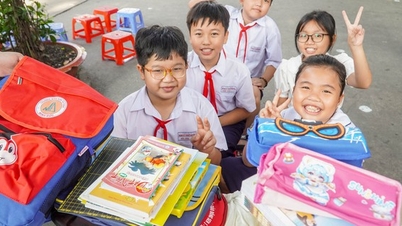

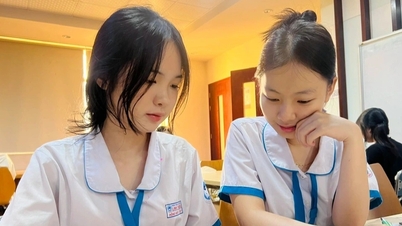

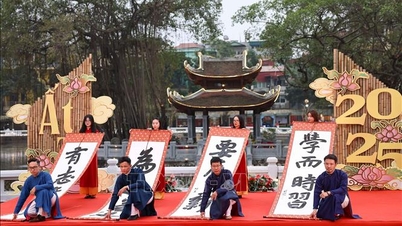







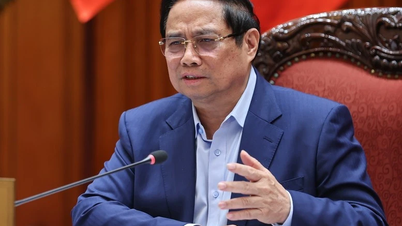
![[Photo] 60th Anniversary of the Founding of the Vietnam Association of Photographic Artists](https://vphoto.vietnam.vn/thumb/402x226/vietnam/resource/IMAGE/2025/12/05/1764935864512_a1-bnd-0841-9740-jpg.webp)













































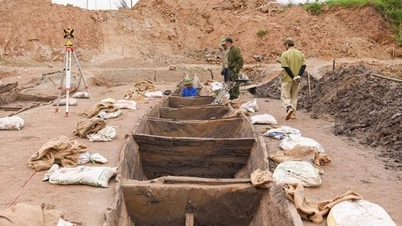


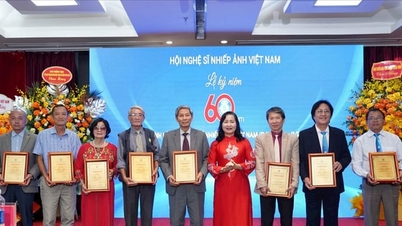



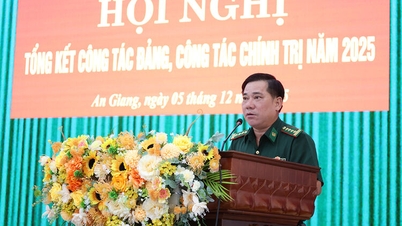





















Comment (0)